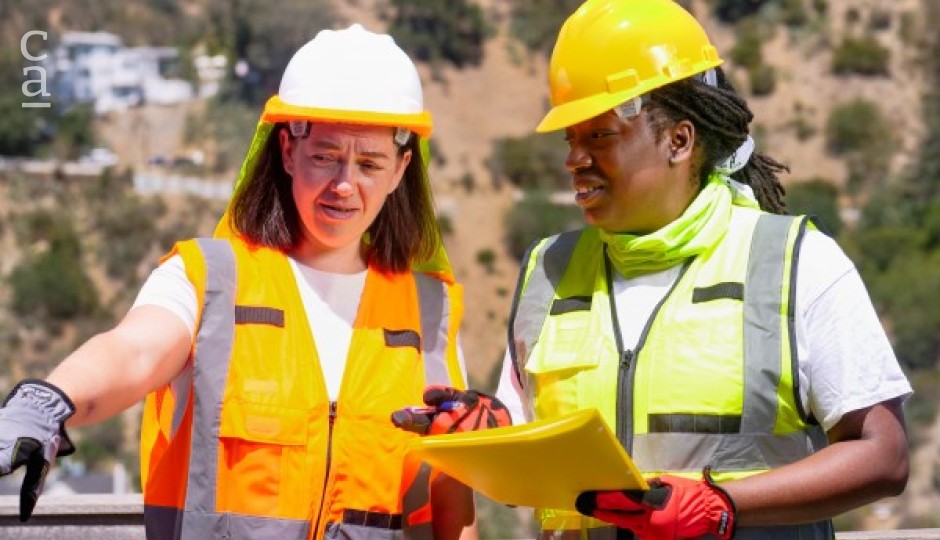Two lessons every contractor must hear about payment applications
Most employers do not pay for construction projects at once.

One important mechanism for payment in a construction contract is the contractor’s payment application. The payment application is important as it assists the employer to find out the value of work done and the amount due the contractor.
Several construction contracts provide for payment applications. Typically, the payment application will show the total value of work completed and the amount currently due the contractor.
Usually, the contract will require that the contractor submit its payment application every month. For a payment application to be valid, the contractor will need to note two vital lessons:
Lesson 1:
The contractor must ensure that the payment application must be clear and in compliance with the contract.
For the contract to be clear, it must relate to the specific due date it was being made and it must be clear in substance, form and intent. Specifically, the contractor must:
a) Ensure that it submits its payment application within the period stated in the contract;
b) Ensure that its payment application is in the content and form recommended under the contract;
c) Ensure that it communicates its payment application in the mode prescribed under the contract.
Where the contractor fails to make its payment applications under the contractual requirements, the contractor will most likely not receive any payment. We can see an example of this consequence in the English case of RGB Plastering Ltd v. Tawe Drylining & Plastering Limited.
The sub-contract between the contractor (RGB) and the sub-contractor (Tawe) required payment applications to be submitted every month. Specifically, the subcontract required that Tawe submits all its payment applications by the 28th of every month. The subcontract also provided that Tawe submits its payment applications to a particular email address: ‘applications@rgb-group.org’.
Tawe submitted its April 2019 payment application on the 30th of April 2019. Although Tawe sent its April 2019 payment application to several email addresses of the contractor’s employees, Tawe failed to send the April 2019 payment application to ‘applications@rgb-group.org’.
RGB argued that having received the payment application after the contractual date and to a different email address, it was impossible to accept there was any application for April, or that Tawe’s application covered work done for April 2019.
RGB stated that the only reasonable conclusion will be that the application for April 2019 was late and therefore invalid. The court agreed that Tawe’s payment application did not comply with the requirements provided in the subcontract. It was not clear so that the parties could know what to do about it or when.
Lesson 2:
The contractor must watch out for contractual provisions that protect employers from being haunted by their past failure to respond to payment applications in the way required by the contract.
It is common for the employer to gloss over its rights and obligations under the contract. Where this is the case, the employer will be estopped from insisting full compliance with the particular contractual obligations.
So, take for instance that the contract requires the contractor to submit its payment application on a particular date and to a particular email address.
The contractor in submitting its 3rd payment application fails to send within the time stipulated and to the wrong address. If the employer proceeds to pay the contractor despite the non-compliance with the contractual requirement, the employer has clearly waived his right to insist that the payment application requirements be strictly complied with.
This means that the contractor can submit subsequent payment applications without complying with the contractual requirements and the employer will be prevented from refusing to pay.
However, the case will be a lot different where the contract contains a clause insisting that the contractor follows the contractual requirements notwithstanding that the employer may have in the past failed to insist on the strict contractual requirements.
If this clause is included in the contract, then the employer is within his rights to refuse subsequent payments that do not comply with the contractual provision. This scenario played out in RGB v. Tawe’s case.
Clause 38 of the subcontract between RGB and Tawe provided as follows:
“1. Nothing contained in any approval or consent given by or on behalf of RGB in connection with the Sub-Contract Works shall prejudice or modify or affect or otherwise relieve the Sub-Contractor for any of its obligations under this Sub-Contract.
2. No purported waiver or amendment to these provisions by RGB’s management on Site or other project personnel shall be construed as an amendment to these terms and conditions. The Sub-Contractor shall comply with these conditions strictly notwithstanding.”
Tawe informed the court that it had in the past submitted payment applications later than 30th April and to a different email address and still received payment. For this reason, Tawe urged the court to prevent RGB from refusing to pay its payment application submitted on 30th April 2019.
Although the court did not consider this point as it was submitted late, Tawe’s argument will still not be valid even if it had submitted its point early. This is because Clause 38 shields RGB from being haunted by its past failures to insist that Tawe’s payment applications be made in accordance with the contract.
Contractors will need to watch out for such provisions and note that its obligation to submit its payment application in line with the contract remains even though the employer forgot to insist on this in the past.

Osinachi Nwandem is a lawyer and arbitrator with vast experience and expertise in construction law and arbitration. He also had prior exposure to litigation and arbitration in a range of commercial disputes ranging from contracts, labour and employment, debt recovery, telecommunications, maritime and taxation.
He practices at the law firm of Aluko & Oyebode, which is based in Nigeria and has been rated as one of Africa's leading law firms.
Osinachi received his law degree from the Rivers State University of Science and Technology, Port Harcourt Nigeria. He obtained his LL.M. degree from the University of Ibadan, Nigeria.
He has a particular interest in assisting clients to resolve their construction disputes and is passionate about developing the practice of construction law in Nigeria. He is a member of the Institute of Construction Industry Arbitrators (ICIArb), the International Bar Association and the Nigeria Bar Association – Section on Business Law.
Osinachi is a regular contributor to several peer-review journals, texts and publication platforms including the Gravitas Law Review, AELEX Article Series and Mondaq, where he proffers viewpoints on recent developments in construction disputes and contracts.

